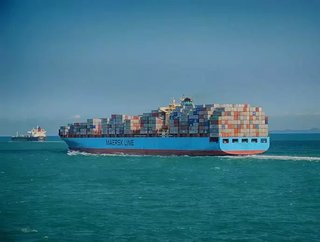Maritime industry navigating digital transformation to reshape supply chains

Maritime suppliers across the value chain will increasingly adopt solutions to address security, overcapacity and accurate cost models, according to new research from ABI Research.
New digitisation solutions, such as big data, blockchain, automation, drones, and robotics, are enabling the maritime freight industry to introduce game-changing approaches that will significantly reduce or eliminate non-value-added activities.
“Along with consolidation and pressures on profits, long-standing players must adapt and work with partners within and outside the industry, from startups to technology leaders in connectivity, AI, and more, including the competition, to align on much-needed standardisation,” said Susan Beardslee, Principal Analyst at ABI Research.
Recent examples include Wärtsilä’ s acquisition of Transas to support an intelligent maritime ecosystem and Artificial Intelligence (AI), as well as Orange Business Service's deal with Cargotec for smart cargo handling.
Global maritime freight transportation revenue is expected to grow from $166bn last year to over $205bn in 2023.
Enhanced revenues and profits will be driven by technologies best poised to disrupt the maritime shipping industry including big data and analytics, blockchain, electrification, assisted and automated operations, drones and robotics, Augmented Reality (AR), and Virtual Reality (VR).
SEE ALSO:
-
Maritime giant CMA CGM announces Ze Box, its first international startup incubator
-
Aramco forms International Maritimes Industries JV with industry partners
-
MPA Singapore and IBM to push ahead with new maritime and ports analytics and data scheme
Maritime cybersecurity, also necessary to address current and emerging threats, will have a global spend expected to rise to $1.7bn in 2023.
Beneficial Cargo Owners are gaining greater supply chain visibility and automation from start-ups including predictive logistics provider ClearMetal, Xenata’s crowdsourced, on-demand, real-time benchmark and market intelligence, Flexport’s digital procurement platform and Freightos’ marketplace for rate management.
Sigfox debuted a new service offering real-time geolocation tracking for containers. Industrial IOT provider ORBCOMM offers reefer management solutions as well as two-way vessel monitoring via satellite and cellular.
IBM partnered with Maersk Line on blockchain as well as with Cisco on smart connected ports. Microsoft is partnering with OOCL on AI for maritime. Electrification is growing including efforts by Guangzhou Shipyard International Company, Port Liner, and Torqueedo.
- Top 10: Women in Supply Chain and Procurement in APACProcurement
- Dumarey Streamlines Suppliers with BearingPoint and JAGGAERSupplier Relationship Management (SRM)
- Explained: What is the SBTi’s Land Transport Guidance?Sustainability
- Top 100 Women 2024: Taryn Thompson, Bank of America – No. 4Sustainability






